© 2024 Olga López
© 2024 Urantia Association of Spain
Urantia Association of Spain Newsletter
Luz y Vida — February 2024
¶ In this issue
- Editorial – February 2024 — M. José Sánchez Santamaría
- Jobs – our recommendations of the month
- History and teachings: Chronicle of the life of Jesus
- Urantia Book for Kids: Jesus at 17
- Other books on spiritual growth
- Recommended video
- Navigating through life – The wise man and the scorpion
- My favorite paragraph — Dario Franco Cuartas
- Urantian Questionnaire — Ramiro Cuestas
- UBIS “In the spotlight” presentation series
¶ Editorial – February 2024 — M. José Sánchez Santamaría
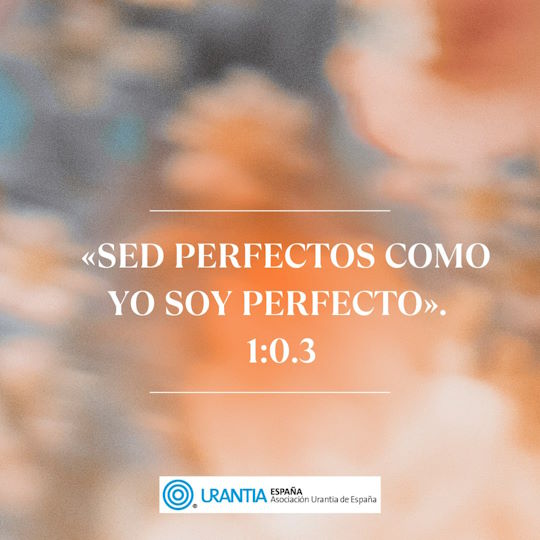
In “Urantian” meetings and forums, it is common for readers to talk about how we have investigated many books or groups looking for something that fully satisfies us, without feeling fully identified with their proposals, until we come across the blue book.
In this very heterogeneous group of readers from all over the world, whom we could label as “spiritual seekers,” there is a longing to discover the ultimate reality and to achieve that extraordinary mandate that resonates in the universes:
«Be ye perfect, even as I am perfect.» UB 1:0.3
Not all of us respond in the same way to this call that our divine Adjuster makes to us from within. In accordance with this, not all of us interpret and read The Urantia Book in the same way.
This extensive and hopeful text that is the blue book lends itself to being approached in different ways that, for the readers of the book, we can summarize as follows:
¶ Works – our recommendations of the month

Some Comments on the Foreword to The Urantia Book (Bill Sadler) (also on the association’s website)
On the Urantia Foundation website there are a number of works by Dr. Sadler and his son, Bill Sadler, that are well worth considering. On this occasion, we recommend the transcription of a talk by Bill Sadler in which he gives clarifying comments on the content of the Foreword, as one progresses in reading his text. Given the importance of the Foreword in clarifying concepts that are later discussed in other documents in the book, anything that helps us better understand these concepts is, of course, welcome.
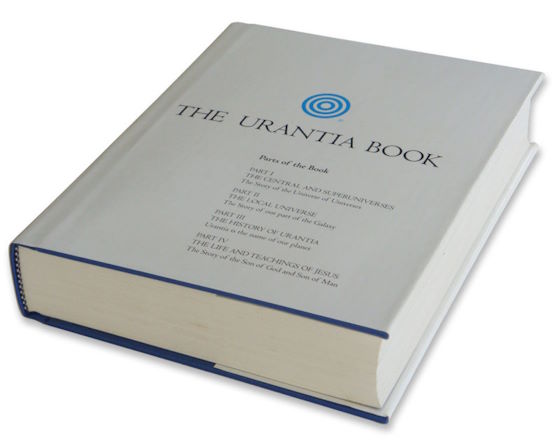
Reflections on some criticisms of The Urantia Book (Dr. William S. Sadler) (also on the association’s website)
All readers will probably agree with Dr. Sadler’s statement: “I believe that overall The Urantia Book stands on its own against all kinds of criticism.” But it is worth reading his reflections in the wake of some criticisms of the book from outside the Urantia community and putting the proper perspective into consideration, taking into account what our revelators left written in the Publication Mandate. As they so rightly told us: “Thousands of spiritually hungry souls will bless you… while millions will condemn you for disturbing their comfortable theology.”

Study of some scientific aspects of The Urantia Book (John Lee) (also on the association’s website)
The author begins by alluding to the famous section 4 of Paper 101, “The Limits of Revelation,” and goes on to state: “The Revelators were very limited in their work and did not reveal everything, for Man must discover for himself the workings of the Universe. I find it hard to believe that the Revelators would have voluntarily revealed errors under the pretext of dissuading us from making a fetish of the Book, as some people imply, or from adhering to the scientific knowledge of the beginning of the century.” He then addresses some of the scientific claims in the book that do not seem to fit with current science.
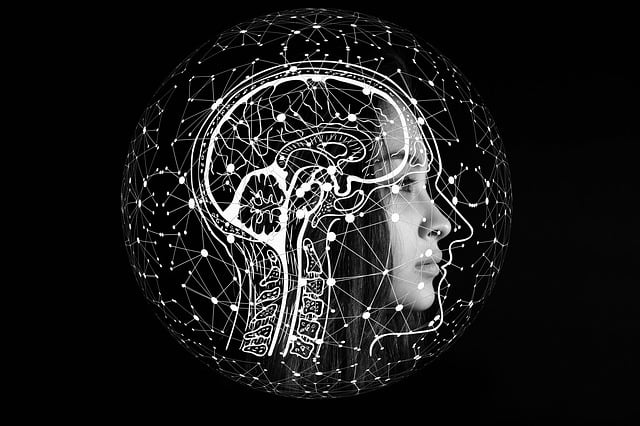
Consciousness, determinism and materialism (Ken Glasziou) (also on the association’s website)
This article deals with these three concepts and the relationship between them, comparing the materialism of the present age with what The Urantia Book says about it. It is interesting to note that determinism is on the decline (as already pointed out by the revelators in The Urantia Book), especially with the advances that have been made in quantum physics, and that scientists are investigating consciousness (not only individual, but also universal) as something real.
¶ History and teachings: Chronicle of the life of Jesus
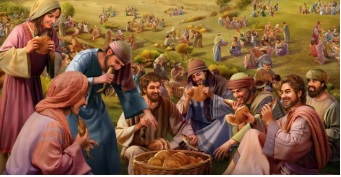
JOURNALISTIC ACCOUNT OF THE LIFE AND TEACHINGS OF JESUS ACCORDING TO THE URANTIA BOOK
We present to you the next installment of the chronicles of the life of Jesus, which on this occasion contains what the revelators tell us in document 152 (The background to the Capernaum crisis). Within the PDF you will see a button from which you can access the text of the document from the Urantia Foundation website.
¶ Urantia Book for Kids: Jesus at 17

We continue our review of the secondary work A Child’s Guide to The Urantia Book, by Mary Livingston. This is the next chapter, which deals with the stage when Jesus was 17 years old, and it begins like this:
«Jesus was healthy, strong, and well developed. He was equally clear-minded and sharp. He was a kind and charming person. He had grown into a young man. His family loved him, but they did not understand many things that he said and did.»
Download the full chapter in PDF format
¶ Other books on spiritual growth
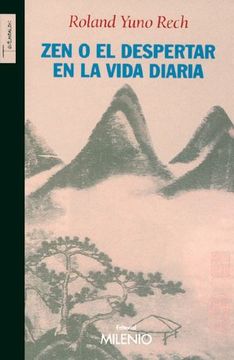
Zen or awakening in daily life (Roland Yuno Rech)
In this very easy-to-read book, the author, a Zen master, discusses Zen philosophy, based on Buddhist doctrine and focused on living in the present, being aware that we are part of something greater than ourselves as individuals. For us, as readers of the book, Zen meditation can be very useful to connect with the divine spark within, as well as to be aware of the present moment and see others as part of us, as contributors to the work of the Supreme. About the practice of meditation (zazen), the author tells us: “In the silence of the practice of zazen, the absence of attachment to our ego leads us to the presence of the real nature of our existence, which is interdependent with all beings and unity with the entire universe… Life becomes free and happy.”
¶ Recommended video
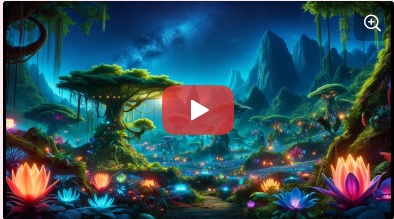
Will you join me? Let’s start the journey!
The Neurophysiology of the Spirit channel began as a personal project of a reader of The Urantia Book, and uses different tools based on artificial intelligence to present concepts related to the teachings of the book. According to its creator, this channel explores “the depths of our existence and the mysterious journey of the spirit in the human mind… Each episode is one more step on our path to understanding how the immaterial and the spiritual intertwine with our innermost being.” This channel is conceived as “a space to grow, learn and connect with the most spiritual part of our being.” Highly recommended for sharing the teachings of the book without necessarily mentioning the source.
https://youtu.be/EyC_bylGkmk?si=gXuBzcTQGdq4UVGA
¶ Navigating through life – The wise man and the scorpion

Once upon a time, a wise monk was walking with his disciple along the riverbank. During his walk, he saw that a scorpion had fallen into the water and was drowning, and he decided to save it by taking it out of the water. But once in his hand, the animal stung him.
The pain made the monk drop the scorpion, which fell back into the water. The wise man tried to pull it out again, but the animal stung him again, causing him to drop it. This happened a third time. The monk’s disciple, worried, asked him why he continued to do so if the animal always stung him.
The monk, smiling, replied that the scorpion’s nature is to sting, while his nature is to help. Having said this, the monk took a leaf and, with its help, managed to get the scorpion out of the water and save it without being stung.
¶ My favorite paragraph — Dario Franco Cuartas

In The Urantia Book I find true teachings for present and future life, to understand the reason for life; but one quote in particular manages to clarify in a simple way why I am here and tells me clearly how to do it.
Your brief sojourn on Urantia, on this sphere of mortal infancy, is but a link, the very first, in the long chain which is to extend throughout the universes and on through the eternal ages. It is not so much what is learned in this first life that is important, but the experience of living it. Even the work on this world, though primary, is not nearly as important as the manner of doing it. There is no material reward for right living, but there is a deep satisfaction—a consciousness of achievement—which transcends all conceivable material rewards. UB 39:4.13
Quote 39:4.13 says that it is not so much what I learn, but the experience of living life, being conscious of the way I live it, that matters. I am hopeful in understanding that the divine plan does not require special knowledge for life, but rather consciousness of accomplishments in the way I live it.
It gives me peace and tranquility to understand that every human being can achieve something. It is not so much the material achievements, apart from survival itself, but the way each human being lives his life and the awareness that he can achieve. This is what truly makes us equal before God.
¶ Urantian Questionnaire — Ramiro Cuestas on 01/29/2024
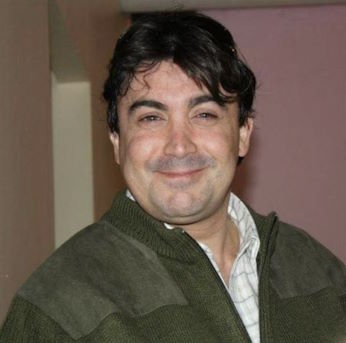
My name is Ramiro Cuestas, I am 54 years old, I live in the city of Comodoro Rivadavia, in Patagonia, Argentina, married to Andrea, we have two children, Thiago, 22 years old, and Ivo, 19 years old. I am a notary by profession and I have been practicing the profession for 29 years in my parents’ notary office.
1. How did you come across The Urantia Book and why do you think you found it?
I was a practicing Catholic, so much so that I became the master of ceremonies for the bishop of my diocese, based in my city. However, over the years I realized that the relationship with God could not be through rituals such as the Mass, or that one could only access Him through an intermediary such as a priest. In other words, I had come to the conclusion that the Catholic Church did not allow me, through its rules, to evolve spiritually. I remember that, during 2019, during a Mass, I was so bored of always hearing the same thing in sermons that I asked God to help me know what the true faith is. Some years before that episode, and because I always had an open mind, I had started reading some books “not authorized by the Catholic Church” that talked about who Jesus was and what he had said and done on our planet, but it was during that year 2019 when I first found Caballos de Troya by JJ Benítez, and it was finally through this novel that I came to The Urantia Book during the year 2020, in the middle of the COVID pandemic. I first read it in digital format through the Urantia Foundation website, and finally, I contacted a reader of the book, Luis Miguel Morales Urrea, who provided me with a printed book. Today I participate in the Urantia Madrid and Descifrando Urantia reading groups, and I also collaborate in the Facebook group “Descifrando Urantia”, run by our dear friend Javier Martínez.
¶ UBIS “In the Spotlight” Presentation Series
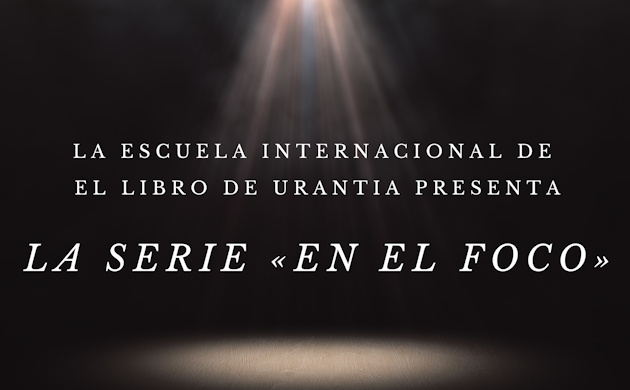
The Uran_tia Book International School (UBIS) offers a series of “In Focus” webinars related to topics from The Urantia Book or the community of readers.
In Spanish, sessions last between 60 and 90 minutes and are held one Saturday a month at 6 pm (Madrid, Paris, Rome time). The presenter gives an introductory presentation on the topic in question, after which there is an opportunity for the participants to participate in a debate.
This is the presentation scheduled for February:
Day: Saturday, February 3rd
Time: 18:00 hours CET (Madrid, Paris, Rome)
Title: The commitment to be a believer in health, illness and death
Presented by: M. Helena Bañas
Zoom Room: https://urantia-org.zoom.us/j/5136302555
You can watch the video of the previous session at this link
https://youtu.be/TwnnJmTceIM?si=Tuqhymbn7fZqDKuE
¶ February Urantia Talk

The Urantia Association of Spain organizes and sponsors the so-called “Urantian talks”, Zoom sessions in which a presenter offers a starting topic, followed by a moderated debate among the attendees.
This is the talk scheduled for the month of February:
Friday 23rd: The Thought Adjuster (Jeannie Vázquez de Abreu)
Location: Association Zoom room
Time: 19:00 hours (Spanish peninsular time)
¶ About the Light and Life Newsletter

Luz y Vida is the newsletter of the Urantia Association of Spain. From 2005 to 2016 it was published in PDF format and distributed by post and email to the association’s reader list, but is currently distributed in newsletter format from HTML content.
If you would like to receive the newsletter in your email, please contact the association to be added to the recipient list.
All work and news from readers and study groups are welcome, so if you wish to share any secondary work, writing, outline, image, etc., you can send it to the association and we will publish it after evaluating its suitability. Likewise, the Communications Committee of the board of directors of the Urantia Association of Spain reserves the right to edit it to ensure it meets minimum spelling quality standards.
¶ References
- Index of the magazine “Luz y Vida” of the Association of Spain
- This article from the magazine “Luz y Vida Online”
- Index of the magazine “Luz y Vida Online”